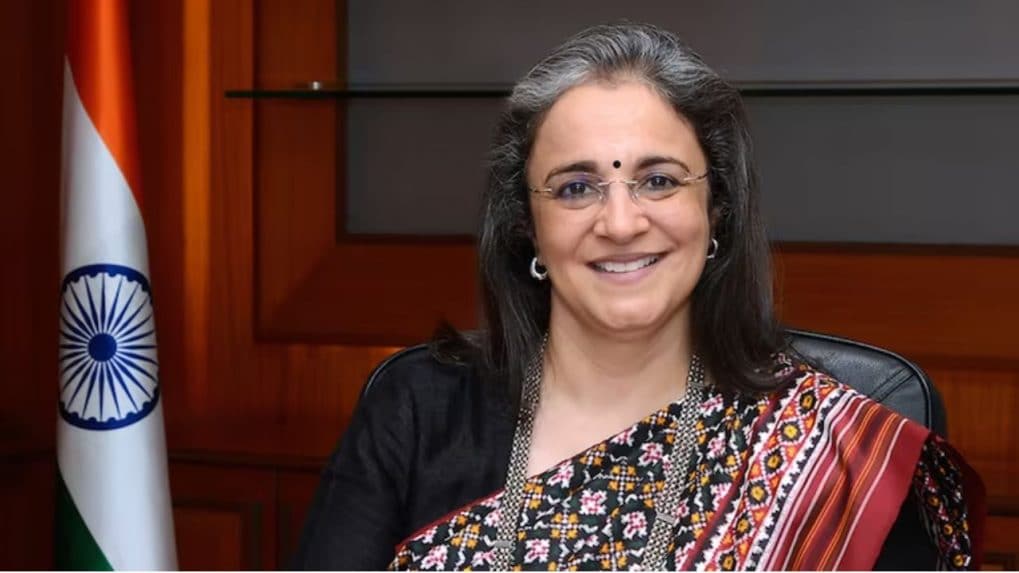How "Unilever Wife" Madhabi Puri Buch is applying FMCG Giant’s strategy on Indian stock markets
SEBI Chairperson, Madhabi Puri Buch, delivered a compelling speech at News18's Rising Bharat Summit 2024, emphasising the transformative potential of sachetisation in financial products, drawing parallels to the success of the sachet model in the shampoo market.
ADVERTISEMENT
At the recently held News18's Rising Bharat Summit 2024, SEBI Chairperson, Madhabi Puri Buch delivered an address emphasizing the transformative potential of sachetisation in financial products, drawing parallels to the success of the sachet model in the shampoo market. In her address, Buch, who called herself a "Unilever wife", invoked the iconic figure of ‘Shakti Amma,’ symbolising the local kirana vendor found in every village across India. She highlighted the immense popularity and accessibility of sachets, which revolutionised the shampoo market, enabling even those with modest incomes to access quality products. Buch articulated a vision where this same principle would be applied to financial products, making them accessible to all strata of society. She said, “Shakti Amma is the local kirana lady found in every village of the country. Our ambition is to emulate her success by introducing sachetisation of all our financial products. Similar to how the shampoo market exploded with the introduction of sachets, making it affordable for everyone, we aim to make financial products accessible to all.”
She also added, “The mutual fund industry indicates that a Rs. 500 per month SIP is profitable for them, although some offer as low as Rs.100 per month, albeit unprofitable, as they rely on cross-subsidy to build volume. We, as regulators, understand the necessity of viability for widespread adoption. We're collaborating closely with the industry to identify and address the various costs, including regulatory burdens, making a Rs. 250 SIP unviable.”
Buch highlighted the collaborative efforts between SEBI and the financial industry to explore sachetisation strategies for mutual funds. She pointed out that while the industry currently deems a Rs. 500 monthly SIP (Systematic Investment Plan) as profitable, there is a need to make smaller denominations, such as Rs. 100 or Rs. 250, economically viable. Buch acknowledged the industry's practice of subsidising smaller investments initially to build volume but stressed the importance of sustainability.
The SEBI Chairperson emphasised the role of digitization in making such micro-investments viable, citing examples from around the world where even small monthly contributions of a few dollars have been made feasible through digital platforms. She framed the journey of democratisation as inseparable from the journey of digitization, suggesting that technology holds the key to expanding financial inclusion.
Buch expressed optimism that with continued collaboration and innovation, Shakti Amma might soon be offering sachets of mutual fund units, enabling individuals to top up their investments with as little as Rs. 250 per month. This, she argued, would mark a significant step towards democratising access to financial products and fostering a culture of savings and investment across India. “Worldwide, people may find it incredulous how a $3.5 per month investment can be made viable, but it's the magic of digitization. The journey of democratisation is intertwined with digitization. Hopefully, soon, we'll see Shakti Amma offering sachets of mutual fund units for as little as Rs. 250 per month."
The speech by Madhabi Puri Buch resonated strongly with attendees at the Rising Bharat Summit 2024, positioning sachetisation as a potential game-changer in India's financial landscape. As SEBI continues to work closely with the industry to address regulatory and operational challenges, the prospect of making financial products as accessible as shampoo sachets appears increasingly tangible, promising a brighter, more inclusive future for all Indians.

